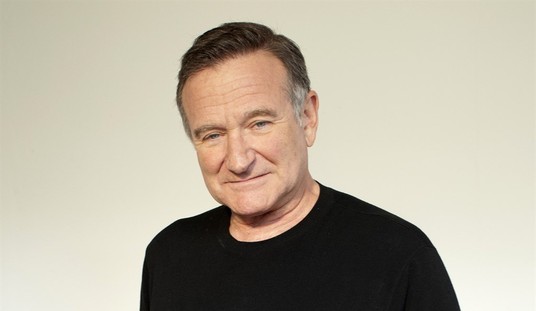American conservatives have found themselves a new and unlikely bogeyman in the shape of (my fellow) Brit Piers Morgan, whose profile in the U.S. has risen in recent weeks as a result of his theatrical contributions to the debate over guns.
Morgan’s rudeness to pro-gun guests, dismissive attitude to the U.S. Constitution and the Bible, and generally anti-conservative tone have led his detractors to call him a liberal. The fact that he’s British has added an element of B-movie villainy, as if Morgan were a haughty redcoat general intent on personally confiscating Americans’ guns.
But while he may walk the liberal walk and talk the liberal talk, Morgan is no liberal; he has no discernible political philosophy. He’s an unprincipled, relentlessly self-promoting opportunist, a disgraced tabloid hack who doesn’t care whom he offends or how foolish he looks as long as he’s the center of attention. Morgan’s stance on a given subject is determined not by ideology, but by what will generate the most controversy, get him the most coverage, and strengthen his hand when negotiating his next book or TV deal. His efforts been given added urgency of late by the need to boost the paltry ratings of his CNN show.
Morgan came to prominence in Britain as editor of News of the World, the Rupert Murdoch-owned tabloid which closed in 2011 following the phone-hacking scandal. The paper was not — to put it mildly — a bastion of liberal journalism. The “News or the Screws,” as it was nicknamed, specialized in celebrity gossip and sex scandals, and what little politics it contained was of the populist, hang-the-criminals, foreigner-baiting variety.
Morgan soon moved to the Daily Mirror, a tabloid that traditionally supported the left-wing Labour Party and the trade unions. If Morgan had hitherto been suppressing his liberal sympathies to further his career, this was surely the time to flaunt them. Instead, Morgan eschewed coverage of serious issues in favor of showbiz and trivia.
His early years at the paper coincided with the rise of the “New Labour” party under Tony Blair, and the man and the movement were made for each other: devoid of principles and concerned primarily with power and influence. Old-fashioned left-wing politics had become an embarrassment, and under Morgan the Mirror abandoned the working class as readers, just as Labour was abandoning them as voters. Labour’s embrace of wealth and celebrity chimed with the Mirror’s shallow tone under Morgan.
In 1996, Morgan was forced to apologize after producing a crudely anti-German front page ahead of a soccer match between England and Germany. Beneath the headline “Achtung! Surrender!”, England players were depicted in World War Two-era tin helmets, alongside a declaration by Morgan of “football war” on Germany. While Morgan claimed it was intended as harmless fun, it was the kind of mildly xenophobic stunt more usually associated with the Mirror’s rival tabloid, the right-of-center Sun — and the sort of thing guaranteed to make a sophisticated, citizen-of-the-world liberal’s stomach turn.
In 2000 Morgan was in trouble again after buying $100,000 worth of shares in a computer company just before it was tipped by the Mirror as a good investment, sending the share price soaring. Morgan was found to have breached the newspaper industry’s code of conduct, but kept his job.
The case highlighted the Mirror’s embrace of the wheeling, dealing, get-rich-quick mentality of the time. Britain was enjoying a boom, and bankers and financial traders were rocks stars rather than villains. One Labour minister famously quipped that his party was “intensely relaxed about people getting filthy rich.” So was Morgan, and the once proudly socialist Mirror.
But — true to form — when both public and elite opinion later turned against the bankers, Morgan turned with it. He told a panel show in the wake of the financial crisis that he’d like to take bankers to Afghanistan “to show them a real day’s work.”
Ironically, Morgan’s attempt to move the Mirror back to the left and to pursue more serious journalism led to the end of his newspaper career. In 2003, with many Britons appearing to oppose the looming military action against Iraq, Morgan decided the paper should oppose an invasion in a bid to attract anti-war readers. Once the battle was joined, however, public opinion swung behind the endeavor, and within weeks the Mirror’s circulation plummeted to a historic low.
Morgan didn’t relent, and in 2004, desperate for a British Abu Ghraib story with which to undermine support for the war effort, the Mirror published photos purporting to show British soldiers torturing civilians in Iraq.
The photos were quickly exposed as crude fakes, and Morgan, who claimed the paper had been hoaxed, was fired.
While Morgan’s days in British newspapers are over, the phone-hacking scandal could come back to haunt him. He shrugged off allegations of hacking during an inquiry into the scandal, but in October four individuals launched court proceedings claiming their phones were hacked by papers including the Mirror during the time Morgan was editor.
Morgan chose to reinvent himself as a TV personality, intent on joining the ranks of celebrities he’d previously sent his reporters out to stalk and harass. After mixed success in Britain, Morgan got his big break in the U.S. in 2006 when he became a judge on America’s Got Talent.
When Morgan was chosen to replace Larry King at CNN, he saw the opportunity to make a name for himself in the U.S. as a journalist, and to add gravitas and respectability to the fortune and degree of fame he’d garnered from shows such as AGT and Celebrity Apprentice. And while Morgan is not at heart a liberal, he’s reinvented himself as one in the U.S. because he wants desperately to ingratiate himself with the country’s entertainment and media elites.
Morgan’s insipid interview style failed to win viewers, however, and his ratings were in the tank when the Sandy Hook shootings presented him with the opportunity to seize the moral high ground. The fact that he succeeded in seizing only the high grounds of righteous indignation and inflammatory rhetoric will have been of little concern to Morgan. He has seen how a combination of mock outrage, contempt for opponents, disregard for the facts, and preening self-regard worked for the likes of Chris Matthews and Keith Olbermann, and he has sought to emulate the formula.
Conservatives, unfortunately, have fallen for Morgan’s shtick. And the more they rise to his bait, the more coverage Morgan gets — allowing him to absurdly claim that he’s influencing the debate.
Satisfying as it was to see Ben Shapiro put Morgan in his place, even when conservatives get the better of him they’re still conferring credibility by treating him as someone worth their time. And when lunatics and conspiracy theorists claiming to speak for conservatives, such as Alex Jones, tangle with Morgan, he’s able to come away looking reasonable, while gun owners and conservatives in general are tarred by association.
Supporters of gun rights need to get their message out; there are well-informed and serious people on the other side of the debate with whom they need to engage. Piers Morgan isn’t one of them — stop granting him the publicity.
Related:









Join the conversation as a VIP Member